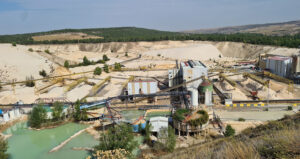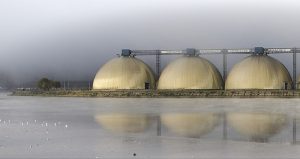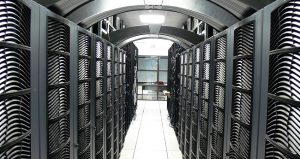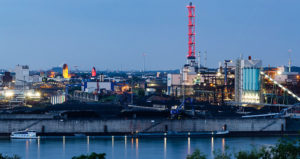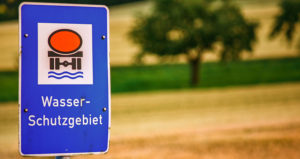Water Europe report underpins strategic, business value of water

-
 Esther Rasenberg
Esther Rasenberg
Share article:
The availability of industrial water is crucial for Europe. Although water abstraction and water use have been reduced over the last decade, water scarcity in Europe has increased due to climate change. A recent study provides in-depth analysis of the European market and macroeconomic data that underpin the strategic value of water to the EU economy. The study was conducted by advisory and engineering agency WSP on behalf of Water Europe, the European voice and promotor of water-related innovation, research, and technology development.
The socio-economic study on the value of the EU investing in water, published in October 2024, analyses water availability as a strategic resource for economic and social activities. The industry is the biggest user of Europe’s water and the availability of industrial water is in dire straits. It also demonstrates the added value of treating, purifying and cleaning (waste) water. The results of this study can help European Commissioner Jessica Roswall in designing the new EU Water Strategy. The study focuses on four priority sectors: semiconductors, data management (data centres), renewable energy supply sources and storage (hydrogen and batteries), and agriculture and food processing.
Growing water shortages
In the last decade, water abstraction and use in Europe have generally declined, while Gross Domestic Product (GDP) and population have been growing. According to Eurostat water abstraction in the EU decreased from about 164 billion m3 in 2010 to 134 billion m3 in 2021 (17.7% reduction). Water use also fell from about 133 billion m3 in 2010 to 109 billion m3 (17.1% reduction). Despite declining water abstraction and use trends, the EU area affected by water scarcity has been increasing since 2010, reaching a total of 29% of the EU territory in 2019, and corresponding to 38% of the EU population.
Improved water use efficiency
Considering the growth in population and in GDP, the decline in water abstraction and use is a good indicator of the decoupling of economic growth from water abstraction and use and improved water use efficiency. The shares of key sectors in water abstraction and use have remained largely stable between 2010 and 2019 in the EU. The energy sector (distribution and production of electricity) is the largest contributing sector to both water abstraction and use in the EU ranging from 35% to 39% of total water abstraction between 2010 and 2019.
Agriculture, forestry and fishing sector
Agriculture, forestry and fishing sector is the second largest water abstracting sector in the EU, ranging from 23% to 24%. Public water supply has also historically been a significant contributor to water abstraction accounting for between 23% and 26%, while household water use accounted for a substantial share of total water use in the EU (11% to 13%).
The importance of European Water Directives
Implementation of the Water Framework Directive and Urban Wastewater Directive aims to limit water pollution and prevent further deterioration of the aquatic ecosystems. Achievement of the set environmental objectives in the 3rd River Basin Management Plans (2022-2027) to reach good ecological and chemical status of European surface water bodies and good quantitative and chemical status of groundwater bodies will be critical for maintaining sufficient water availability for economic growth.
True value of the water sector
The economic performance (GVA, jobs) of the water sector does not reflect its true strategic value. For instance, water is a crucial resource for industries such as semiconductors, renewable hydrogen and EV battery sectors with a market worth € 172 billion in 2024 and forecast to grow to around € 1 trillion by 2030. The overall EU Gross Domestic Product (GDP) in 2023 was about € 17 trillion at current prices in the EU-27, while unemployment has dropped to its lowest level in the last 10 years totalling 6% of the population in the labour force.
Innovation to enable industrial growth
A cost benefit analysis strongly highlights the strategic importance of water for key high value sectors in EU. The Semi-conductor, Data Centre, Renewable Hydrogen and EV Battery sectors could see their combined market size grow from € 192 billion in 2024 to € 931 billion in 2030, requiring 1.8 billion m3 of water, almost 2.6 times the water demand in 2024. Innovative water saving technologies could save nearly 3 million euros and create about 15,000 jobs. ‘A key recommendation would be to look at the opportunities and enabling factors for scaling up the new water saving technologies’, the report notes.


